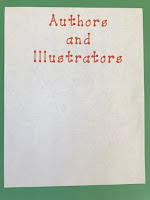Nonfiction writing is all around us from signs to newspapers to emails to food wrappers. Most state standards include informational writing similar to the Common Core Standard below:
Use a combination of drawing, dictating, and writing to compose informative/explanatory texts in which they name what they are
writing about and supply some information about the topic.
Over the next few days I’ll suggest some activities where children can have the opportunity to be engaged in “playful and challenging” nonfiction writing. These activities can be used for independent work or in a literacy center. Many would also be perfect to do with a partner.
Interview
Have children interview parents, friends, school personnel, etc.
*Ask their parents what it was like when they were in school. What games did they play? What was their favorite subject? What was their favorite book?
Directions
Write directions or a “how to” for, a sport, a game, a craft, or something they are good at.
Recipe
Write a recipe for a favorite food.
*This time of year it would be interesting for children to write “how to cook a turkey."
*Create a menu for a restaurant they would like to own.
*Ask children to bring in an empty cereal box and design a new cover for it.
Note! When making class books where every child contributes have a page where children can sign their names as "authors and illustrators." You can also let the children "dedicate" the book and include the copyright date and publisher.
Note! When making class books where every child contributes have a page where children can sign their names as "authors and illustrators." You can also let the children "dedicate" the book and include the copyright date and publisher.
Lists
Make lists of books they read, toys they own, what they can do instead of watching TV, things in their desk, etc.
*As Thanksgiving approaches a list of things they are thankful for would be appropriate.
Invitation
Write invitations to a class program or party.
Advice
Write suggestions on “how to be a good friend,” or “what to do when you get angry.”
Diary/Journal
Let children have a quiet time each day to write in a journal or diary.
Riddles & Knock Knocks






